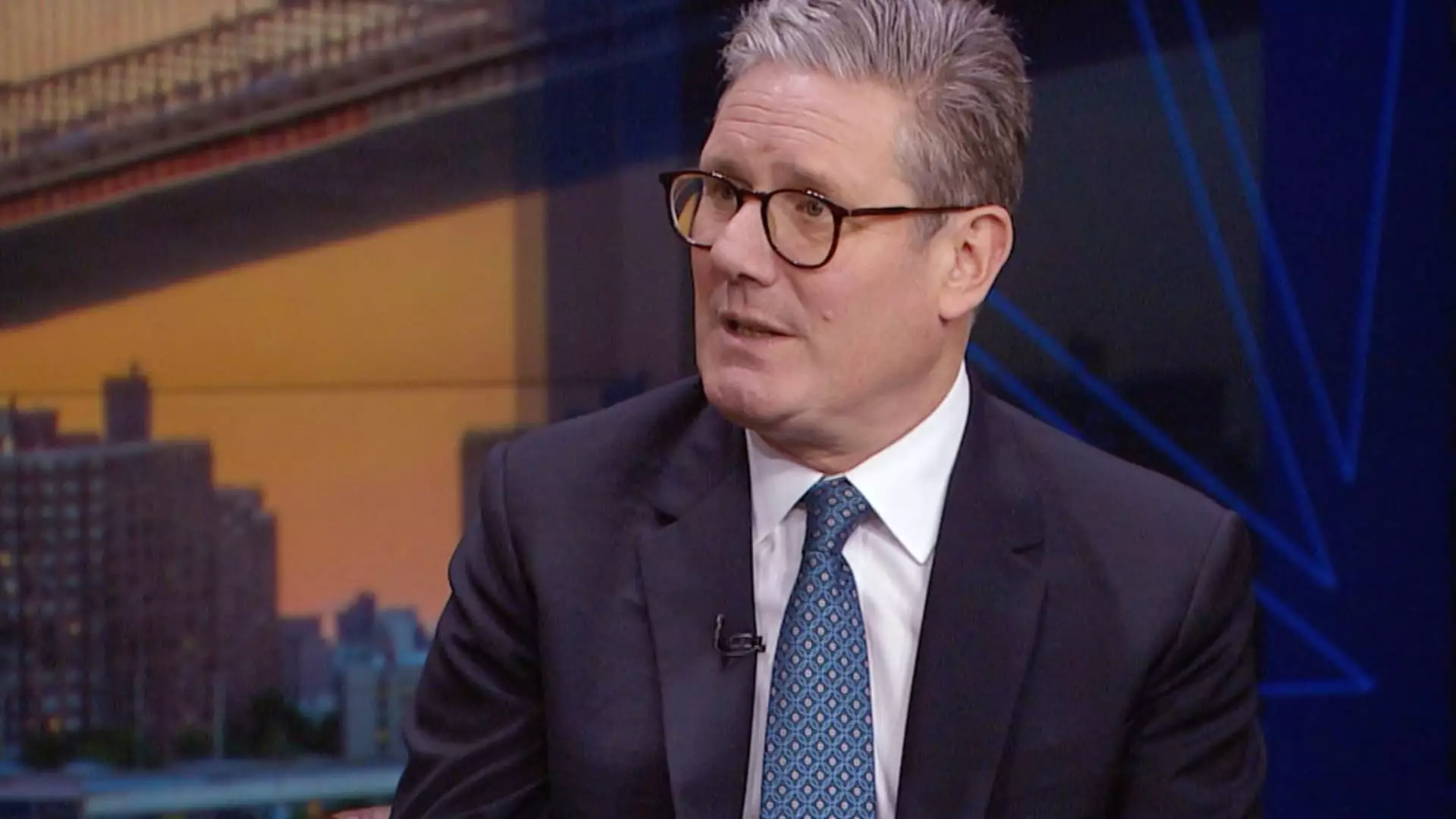The political landscape of the United Kingdom is undergoing a significant transformation, particularly since the Labour Party, led by Keir Starmer, has taken the reins of power. Starmer’s ascent to leadership marks a revived commitment towards not only advocating for workers’ rights but also fostering a robust pro-business environment. His administration’s approach signals a departure from the Conservative government that had dominated UK politics for over a decade. The Labour Party, often associated with social equity, is now embracing an economic strategy that emphasizes wealth creation as its driving force.
In a recent interview, Starmer articulated this dual commitment stating, “We are a Labour party that is proud to say we are pro business just as much as we are pro worker.” This reflects an evolving political philosophy that recognizes the necessity of a strong economic foundation in order to support public services and welfare initiatives, a balancing act that is critical for long-term stability and growth.
Recognizing the direct correlation between private investment and economic revival, Starmer is actively courting significant financial players from across the Atlantic. During a high-profile trip to New York City, he engaged with influential figures from leading banks and technology companies, aiming to stimulate investment in various key sectors including renewables, artificial intelligence, and life sciences. The highlight of this engagement was Blackstone’s commitment to a $13 billion investment in a large data center project in northeast England, a move that is set to create thousands of jobs and bolster the region’s economic prospects.
Such investments serve as important indicators of confidence in not only Starmer’s administration but also the UK’s overall economic potential. By tapping into sectors poised for growth, the Labour government hopes to galvanize a stagnant economy, signaling a proactive stance towards making the UK an attractive destination for capital.
Despite these ambitious undertakings, Starmer’s government faces a daunting challenge ahead. An economic audit exposed a substantial financing shortfall of £22 billion ($29 billion), raising flags about the sustainability of new proposals. Critics, including Jeremy Hunt, the former Conservative Finance Minister, have labeled Labour’s financial claims as “deeply troubling,” suggesting a contentious backdrop against which Starmer must operate.
Moreover, there is growing concern within the party regarding Starmer’s sometimes pessimistic rhetoric about the UK’s economic conditions. His administration’s attempts to revise fiscal strategies, including the plans to eliminate the non-domiciled tax status, have faced scrutiny and resistance from segments within his own party. Economic stability requires a delicate equilibrium; balancing prudent fiscal responsibility with the need for growth-driven policies remains paramount.
The Labour Party, while generally united under the leadership of Starmer, is not without its factions debating how best to navigate economic reform. A notable instance was encountered recently at the Labour Party’s Annual Conference, where Starmer’s proposal to reduce the winter fuel allowance for pensioners was met with resistance. This situation lays bare the tension between necessary austerity measures and public sentiment, particularly among vulnerable demographics such as retirees.
Despite these hurdles, Starmer maintains that tough decisions are unavoidable. He stated, “We can commit to what we call the triple lock,” which ensures that the state pension rises in a manner that protects the most vulnerable. Upholding the triple lock, while addressing budget constraints, showcases the balancing act required to maintain essential benefits without destabilizing the economy further.
The United Kingdom stands at a crossroads, with its new leadership attempting to breathe life into a listless economy amid attempts to forge partnerships with major global entities. Starmer’s vision embodies both optimism and realism, seeking to attract investment while addressing contentious spending issues.
As the Labour government prepares to unveil its budgetary measures, the response from the business community, public sentiment, and internal party dynamics will be crucial to the success of its economic strategy. The journey towards economic revival is fraught with challenges, but it also presents a unique opportunity for reshaping the narrative around the UK as a viable hub for innovation and growth in the global economy.

Leave a Reply